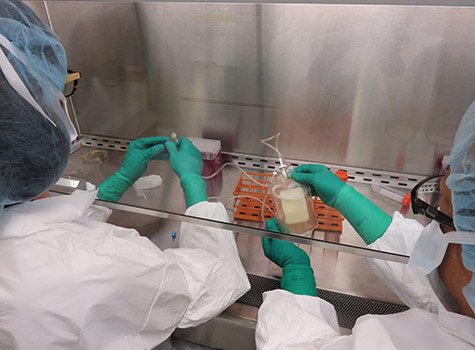
David Paul Morris | Bloomberg | Getty ImagesApple CEO Tim Cook.
The effort hints at Apple's ability to pump out custom chips on as-needed basis, reflecting a greater level of vertical integration than other technology companies. Building custom chips for narrow functions can help Apple add new features and improve efficiency of its hardware while protecting its intellectual property from would-be imitatotrs.
A July 10 job posting from Apple's Health Sensing hardware team says, "We are looking for sensor ASIC architects to help develop ASICs for new sensors and sensing systems for future Apple products. We have openings for analog as well as digital ASIC architects."
It's not clear what the sensors would measure, but it appears to be information from the body. An Aug. 1 posting said simply that the team wants to bring on an engineer who can "help develop health, wellness, and fitness sensors." And a June job listing shows the team was looking to keep working with optical sensors. Currently available Apple Watches have optical sensors that can measure heart rate.
Apple, which surpassed a trillion-dollar market capitalization earlier this month, designs chips for iPhones, iPads, AirPods and Apple Watch. Bloomberg reported earlier this year on Apple's chip-development plans for Mac computers.
At the same time, for years Apple has relied on smaller companies to supply additional components. The most recent Watch, for example, contains a part called a custom-sensing application-specific integrated circuit, or ASIC, from Broadcom.
As a rule, these specialized chips are meant to take care of computing information coming off of sensors for things like depth and distance. That way, products' primary chips can work more efficiently. Apple wants to work with new types of sensors so its devices can deliver better battery life and performance. Developing its own chips might be a way for Apple to protect its intellectual property from third-party health developers as it aims to develop new sensors.
Several Apple products, including iPhone and Apple Watch, include health-monitoring features. The company's areas of interest so far include exercise, cardiac health, and sleep quality through its acquisition of the health monitor Beddit. CNBC previously reportedthat it's also working on the so-called biomedical holy grail: continuous and non-invasive blood-sugar monitoring.
Health experts say that it would be a huge breakthrough for millions of people with diabetes, if Apple can pull it off.
"I could see one day in the future an optical sensing technology could be used to non-invasively measure glucose, and what a benefit in comparison to pin-sticking technologies that we have today that require a physical amount of blood to be measured," said Anil Sethi, a former director in Apple's health records group who now runs a health data start-up called Ciitizen. Sethi did not have direct knowledge of Apple's chip plans.
It's also possible that Apple's chip hires are related to current biomedical sensors, rather than future ones. Heart rate monitoring to detect signs of disease like atrial fibrillation, for instance, would be improved through more continuous monitoring. Apple in late November announced plans for a heart study to find out whether the Apple Watch can accurately measure the heart's rhythm to pick up on potential abnormalities.
Apple is not alone in pursuing custom chips. Alphabet's Google has pushed into silicon development in recent years. It has come up with artificial intelligence chips for servers and, most recently, for small internet-connected devices. Amazon and Facebook have shown interest in chip customization as well. But Apple has a longer track record of cranking out its own chips, across multiple product lines.https://www.cnbc.com/2018/08/14/apple-looks-to-develop-chip-for-processing-health-data.html
